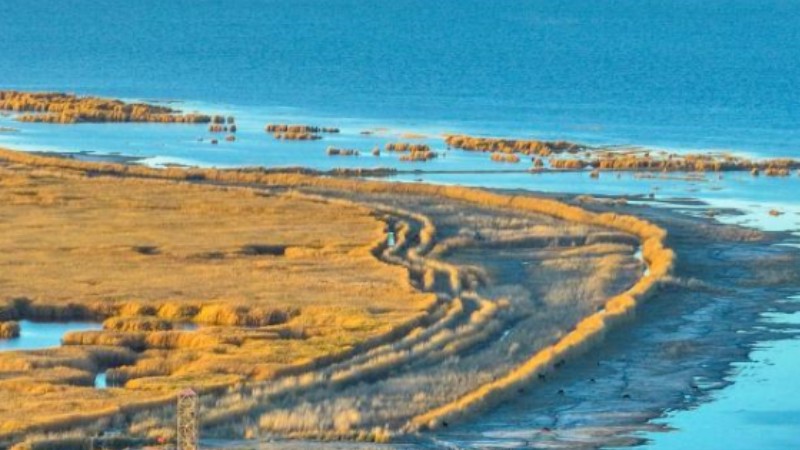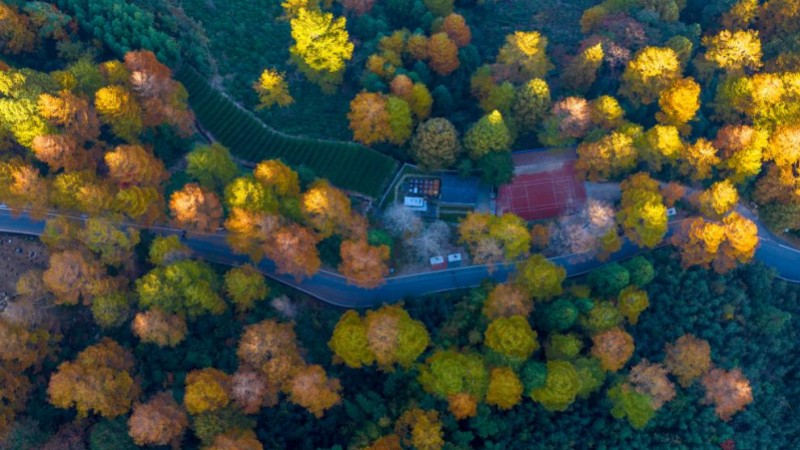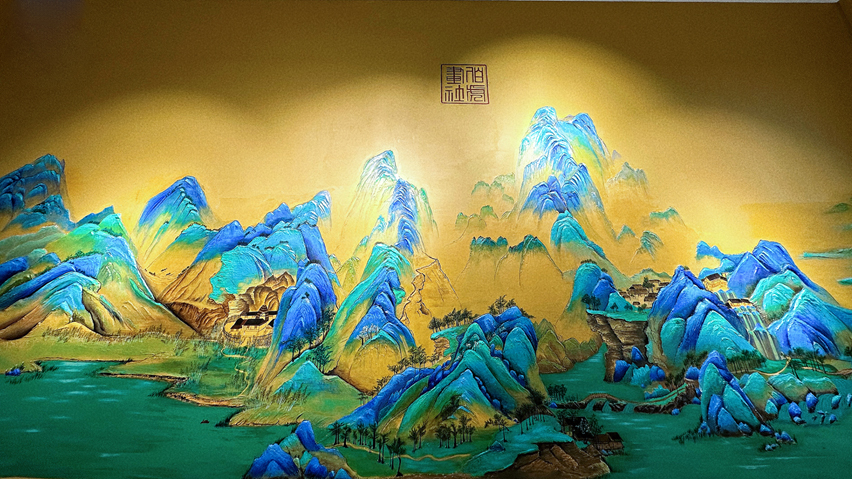Tea tradition brew dialogues between lawmakers, locals
FUZHOU, Nov. 4 (Xinhua) -- In the picturesque town of Wufu, east China's Fujian province, local villager Wang Shenglong gazed up at the rows of saplings on Wugongshan Mountain, envisioning a vibrant tapestry of colorful leaves beneath the autumn clouds in the years to come.
Little did he know one and a half years ago that what began as mere grumblings would brew into a tourism initiative -- the ongoing greening project in Wufu Township. The story began with a unique tea lounge.
SIPPING TEA
For generations, the people in Wufu have made drinking tea a way of life. The town is nestled deep within the county-level city of Wuyishan, or Wuyi mountains, an area that has been one of the centers of tea production for hundreds of years.
Harnessing the centuries-old tradition of enjoying tea, in 2022, the people's congress in Wufu Township adopted a novel approach to help deputies better communicate with the people.
It established a tea lounge within a historic residence situated on Xingxian's ancient street, where people are encouraged to share tea, and more importantly, their opinions and concerns, with local deputies.
Under the system of people's congresses, China's fundamental political system, the deputies to people's congresses are mandated to maintain close ties with the people, understand public sentiment, gather community ideas, and endeavor to enhance people's welfare.
"Having deputies move from their office desks to tea tables helps people relax when they voice their concerns," said Chen Xu from the people's congress in Wufu Township.
The choice of location was deliberate. Xingxian Ancient Street, stretching approximately 1,000 meters, cuts through three villages, and the tea lounge is at its heart. Today, over 6,000 villagers call this area home, constituting two-thirds of the town's permanent population.
Since the tea lounge opened in June 2022, every Tuesday and Sunday, a dynamic rotation of five deputies to local people's congresses -- spanning from city to county and township levels -- partake in a tea rendezvous with visitors.
Additionally, residents can reach out directly to these deputies to schedule their visits, and the deputies also conduct non-scheduled outreach activities.
"We are glad to have this place to sit together with the deputies, sipping tea and chatting. Sometimes, the conversations help us sort out what our needs are," Wang said.
SOLVING CONCERNS
Wang came to the tea lounge during its trial run, and his concern was recorded as the first entry in the visitor log.
"What I hoped for was a longer peak season," said Wang, who, aside from growing lotus roots, engages in selling agricultural products to tourists.
Wufu Township, famous as the hometown of Zhu Xi, a great Chinese philosopher in the 12th century, has primarily been an agricultural community, with recent efforts to boost the local economy by integrating farming and tourism. Now, the combined appeal of Zhu Xi's hometown and vast lotus ponds has attracted tourists from a wide range of areas.
For Wang and many people like him, the primary challenge was that lotus flowers only bloom in summer, leading to a noticeable drop in the town's tourists during other seasons.
"All deputies at the tea room are locals. We know it is not one individual's complaint," said Lyu Kunxiu, one of the deputies stationed in the tea lounge.
Registered and reported to the township government by the deputies, Wang's concern was responded to with a decision to explore local tourism resources a few months later.
With the collective wisdom of their residents over sips of tea, the town hatched the ongoing greening project on Wugongshan Mountain. It involves transforming the existing forest landscape of the mountain, coupled with the introduction of diverse flora.
So far, over 7,000 saplings have been planted on the mountain. In a few short years, tourists visiting Zhu Xi's former residence will also be treated to the ever-changing scenery of Wugongshan Mountain.
The tea lounge not only caters to locals but also welcomes tourists, promptly addressing their suggestions such as more trash bins and improved street lighting.
Speaking of the special tea room in Wufu Township, Jiang Lihuang, a local researcher on Zhu Xi's philosophy, underlined the significance of such an innovative move in Zhu Xi's hometown.
"The system of people's congresses in China is deeply rooted in the ancient people-centered philosophy that Zhu Xi advocated for. Here in Wufu, the deputies better identifying and solving problems with the help of local traditions is another practice of that philosophy," Jiang said.
Since its establishment, Wufu Township's special tea lounge has received 33 opinions and suggestions, with only two of them still pending.
Furthermore, similar tea lounges have sprouted in ten townships and streets across Wuyishan.
Photos
Related Stories
- Chinese tea culture event held in Mongolia
- Trending in China | Fujian's aromatic ambassador to the world
- China's new-style tea drink market likely to exceed 200 bln yuan in 2025: report
- Mountain with well-preserved ancient tea trees in SW China's Yunnan thrives on tea and tourism
- Russian businessman's tea journey to China
- SW China's Yunnan takes measures to preserve ancient tea forest culture
Copyright © 2023 People's Daily Online. All Rights Reserved.









